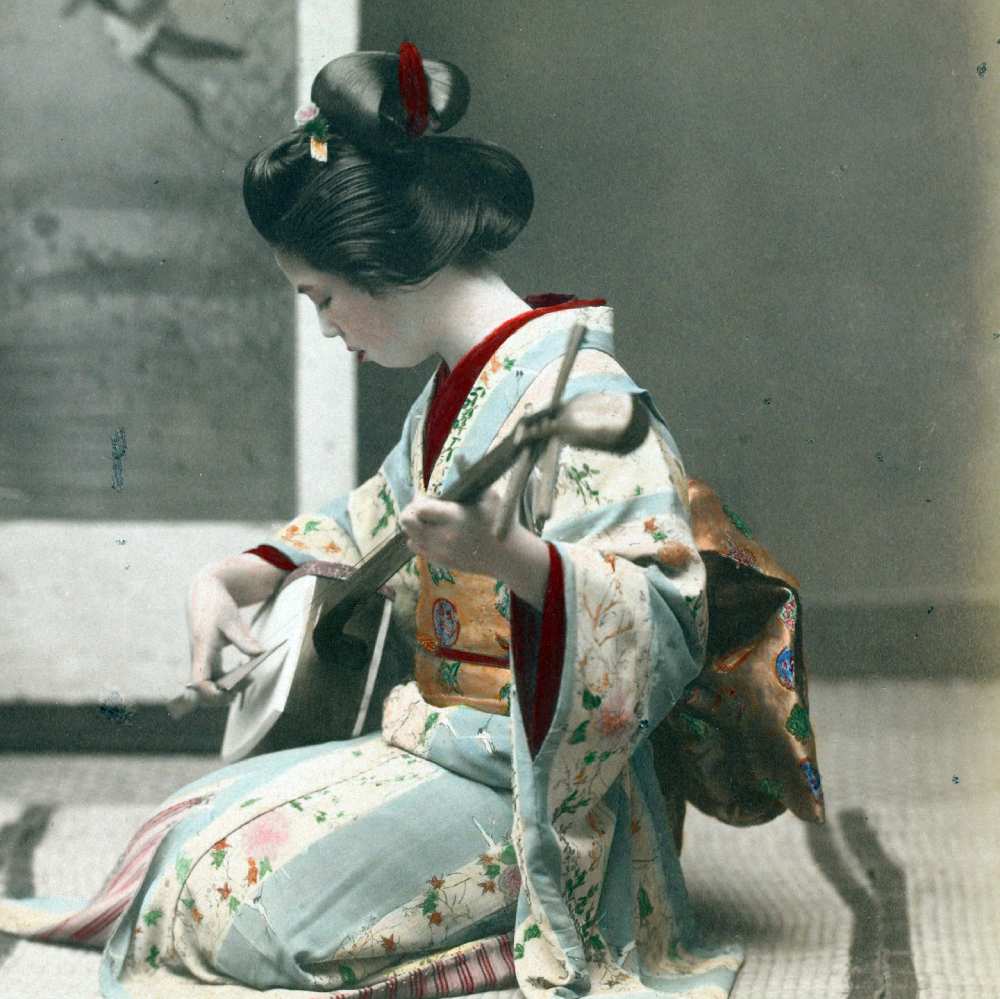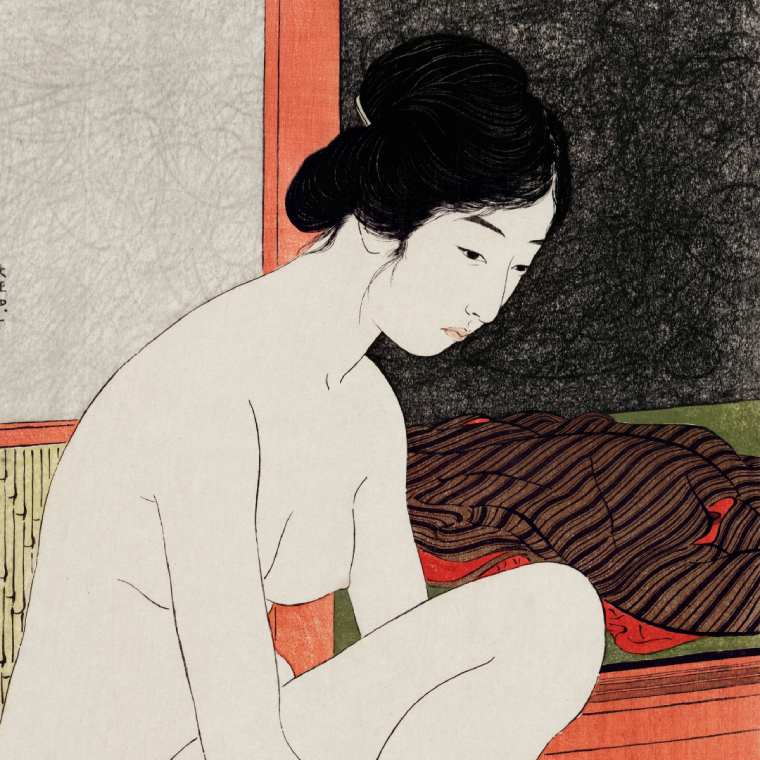Kokonoye was the name of a well-known courtesan who was possessed of considerable literary ability. Her story is a sad and withal interesting one as it reveals the vein of illogical reasoning traversing the unnecessarily severe and inhumane judgments of the Japanese judicial authorities in ancient times. It appears that Kokonoye had been in the employment of a certain respectable citizen of Tōkyō as wet-nurse for his infant son. By and by the child grew older, and one day while playing, he got drawn into a quarrel with one of his comrades. Words soon led to blows, and the boy inflicted an injury on his little playmate which caused the death of the latter. The dead boy’s parents, indignant at the deed, complained to the authorities and the case came on for hearing before Ōka Echizen no Kami who was renowned as a great jurist in the olden days. The Solomon-like Judge decided that both the little prisoner and Kokonoye were alike guilty. He said that the boy had actually committed homicide, and that the nurse had been an accessory to the crime inasmuch that she had failed to exercise proper control over her charge. The boy was therefore sentenced (due consideration being had for his tender years) to be sent to a monastery and trained as a priest, while the unfortunate nurse was condemned to a life of shame in the “Sea of bitter misery” (the “Yoshiwara”) for a term of five years. Kokonoye was accordingly sent to the Yoshiwara and was there engaged as a courtesan in the “Nishida-ya” at Yedo-chō, It-chō-me. Another account says that this woman originally belonged to the family of a Kyōto citizen, but that owing to her lewd conduct she was[282] sent to the Yedo Court for trial and there sentenced to perpetual service as a courtesan in the Yoshiwara. That she was a woman of literary and poetical tastes some of her compositions testify; especially one poem in which she feelingly refers to her native place, her banishment, the three great duties of women, and the five obstacles against women attaining the joy of Nirvana. Years rolled by, and, on account of her age, Kokonoye was no longer able to retain the popularity which she had originally enjoyed. Accordingly in the Kyōhō era (1716–1735) the nanushi and elders of Yedo-chō proceeded to the Court and prayed for the commutation of Kokonoye’s sentence on the ground of her age, but the petition was rejected. On hearing this the poor woman was overcome with the most bitter grief, and composed a poem which may be translated thus:—“Alas! I am doomed to live in a place far from my parents’ home, and to ladle up for ever the water of the never-ceasing stream of the Sumida river.” On reading this sad poem the nanushi’s pity was intensified a thousand-fold, and with moist eyes he brought the lines to officials of the Bugyō-sho and again begged the writer’s liberty. Greatly moved by this expression of hopeless misery, the authorities were graciously pleased to show their clemency to the unfortunate courtesan, and readily granted the nanushi’s second petition. (Brief sketches of the lives of famous courtesans./The nightless city; or, The “history of the Yoshiwara Yūkwaku/J. E. De Becker)










